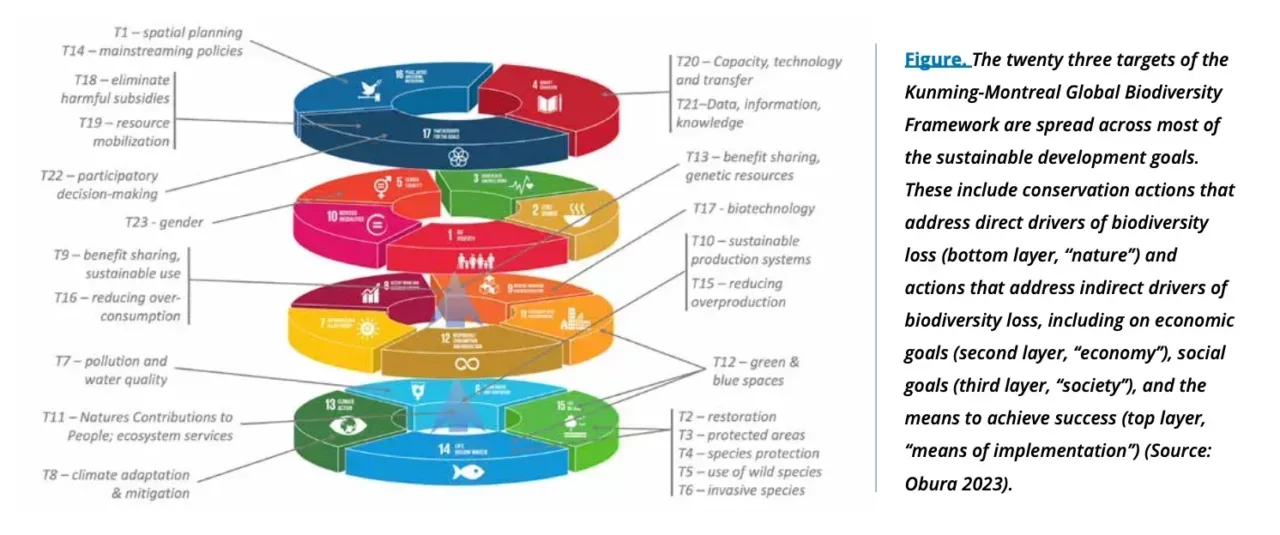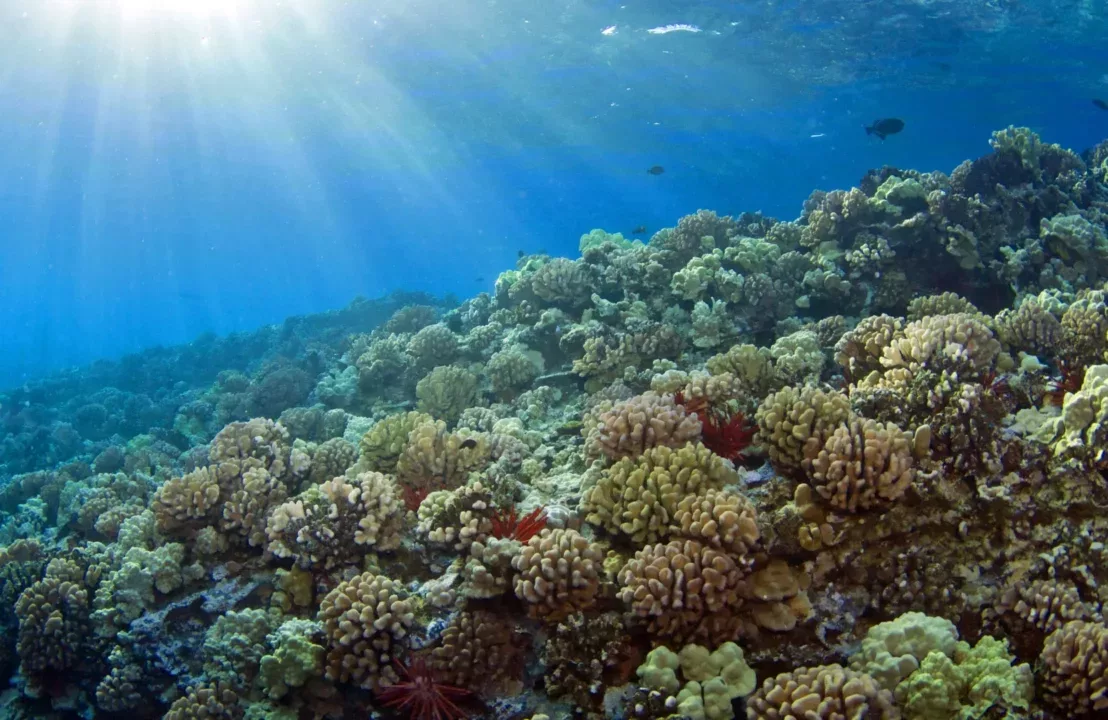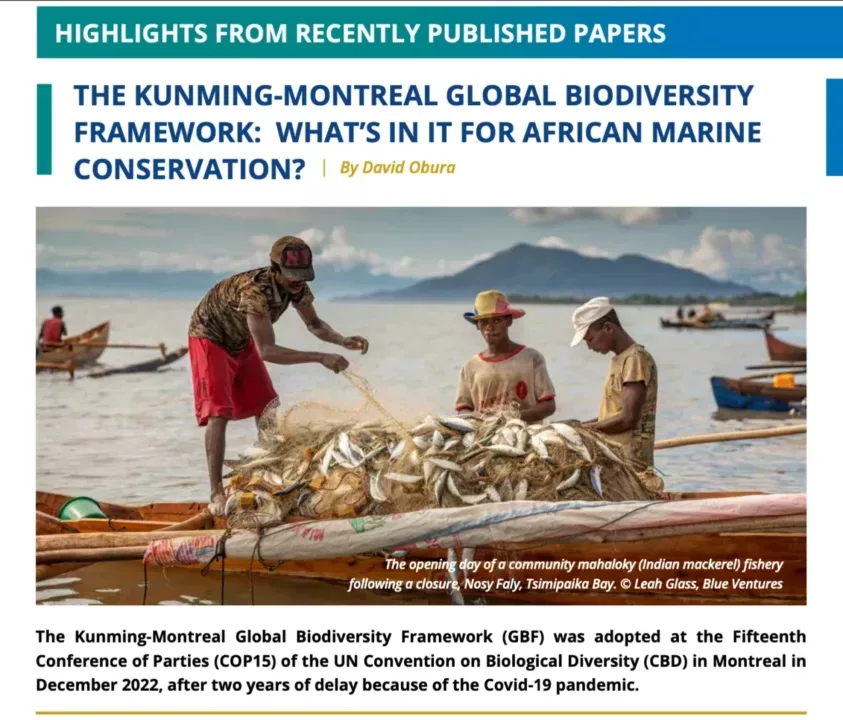The Kunming-Montreal Global Biodiversity Framework (GBF) was adopted at the Fifteenth Conference of Parties (COP15) of the UN Convention on Biological Diversity (CBD) in Montreal in December 2022, after two years of delay because of the Covid-19 pandemic.
Dr David Obura, CORDIO East Africa, has penned a highlight piece for the Western Indian Ocean Marine Science Association (WIOMSA) as part of their April News brief, focusing on the Kunming-Montreal Global Biodiversity Framework and what is means for African marine conservation.
The journey to this milestone was long and winding, stretching over three-and-a-half years of consultations and negotiation, through online and in-person meetings. Of interest to the WIO marine science community is how the text that resulted from this process is relevant to Africa and ocean and coastal conservation in general.
The GBF text has little mention of ocean biodiversity, which many feel is a weakness. In reality people will always focus on what is most familiar and most immediately relevant to them, thus on terrestrial biodiversity issues. In many ways the ocean suffers from the global failure to assure sustainability on land (e.g. pollution flowing downstream, displacement of effort into fisheries, the ocean as a new (blue) economic frontier of opportunities) so pushing for successful terrestrial implementation is important for ocean sustainability.
Also, biodiversity principles are in the main similar on land and in the sea, so what is stated generically or for land (e.g. 30% of area protected or maintained in high function/intact condition) can often be translated to the ocean. Within ocean- interested groups, insistent lobbying over terms such as ‘ocean’, ‘sea’, ‘marine’ and/or ‘coastal’, took time away from negotiating more fundamental requirements.
It is welcome that the narrow focus on coral reefs in prior biodiversity targets has broadened significantly, with the rise in profile of mangroves, seagrass and salt marshes, and of ecosystem-based and benefits-oriented approaches.

The role of the open and deep ocean was elevated, but many states hold that the CBD cannot extend its reach to areas beyond the jurisdiction of the states. Thus the immense importance of the Biodiversity Beyond National Jurisdiction (BBNJ) treaty whose text was agreed in the last weeks (though still to be ratified by countries to make it real).
African countries don’t like the term ‘nature-based solutions’ because of valid historical experience with abuse of the term. But hopefully science and practice will show that done correctly (i.e. without negative biodiversity or social consequences) these are foundational to prosperity (and conservation), and particularly along coastlines facing the challenges of climate change, sea level rise and urbanization – and should be supported to the fullest extent possible.
You can download and read the full piece from David Obura below and here.
Read more about ICRI’s efforts #ForCoral in relation to the Kunming-Montreal Global Biodiversity Framework alongside a host of resources and communication regarding coral reefs at www.coralpost2020.org
The text in this article has been extracted from from the April 2023 WIOMSA Newsbrief: 17th April 2023.


